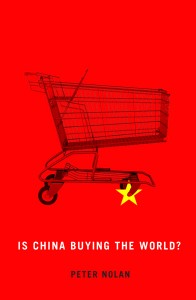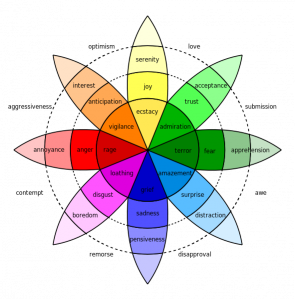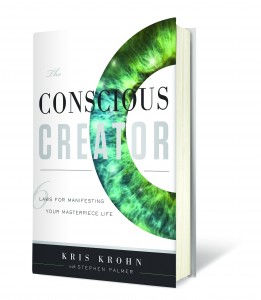The Latest Filibuster
March 11th, 2013 // 1:11 pm @ Oliver DeMille
A Giant Step for Mankind…
 Okay, the subtitle of this article is a little overblown, but I heard something that I found just plain fascinating the other day.
Okay, the subtitle of this article is a little overblown, but I heard something that I found just plain fascinating the other day.
In fact, it is something I haven’t heard for a long time.
I was researching in a university library, sitting at a table looking for data in a stack of scholarly journals, when I heard the most unlikely thing in such a place.
“Rand Paul’s filibuster is so cool,” a girl’s voice said. My mind was focused on tables of World Bank summaries of currency values in industrial nations, and there were a lot of voices as students walked past and talked.
Most of them talked about classes, romances or roommates, and I tuned out to their words as I researched.
But my ears perked up and my mind tuned in when I heard these words.
I looked up to see a college girl, probably late teens or early twenties walking with three friends. The others nodded in response to her words.
“Really?” I thought, “Somebody thinks a national Republican figure is cool?” When I’ve heard such words before, it was always reserved to President Obama.
I mean, Ronald Reagan gets his share of praise from the older crowd, but the college students I’ve overheard recently saying a politician is cool have all mentioned either Obama or Ron Paul.
But a Republican who really could win the nomination, this was something different.
As a writer, I like to read and research in libraries (‘cause that’s where the books are, to paraphrase Willy Horton), restaurants and other public areas.
People walk by talking about things, and often they say something that helps an author’s thought process.
I went back to my research, and I forgot about the incident until I went to lunch.
As I balanced my attention between a salad and a copies of the World Bank tables, I was shocked to hear a girl from the next table say, “Did you see the filibuster yesterday? Rand Paul is so cool.”
I turned my head, expecting to see the same group of students, but to my surprise a whole different group sat there nodding.
What has happened?
Is it possible that Republicans will come up with a cool candidate in 2016?
Maybe.
It’s a long way off, to be sure.
But the hippest candidate always wins, or at least has in every election since the technicolor media age began in earnest around 1980.
Howard Dean once said that the way to know who won a presidential debate is to turn off the sound and just watch their body language.
On an even bigger scale, just turn off the television and internet and ask college-age students which candidate is really cool.
Jeb Bush suggested recently that he might run, Time magazine called potential candidate Marco Rubio the Savior of the Republican party.
Or did it just ask us if Rubio might redeem a party that can’t seem to get the Latino vote vital to winning the White House.
The whole idea of electing a cool president is frustrating for many on the Right, who see this as shallow popularity contesting in what should be one of the most serious votes anyone makes in an election year.
Still, the cool test wins every time, whether or not it should.
One thing is for sure.
Hillary Clinton is considered way cool, so if Republicans have any desire to take back the presidency in 2016 they need to meet a high standard.
More Mr. Smith Goes to Washington filibusters may be ahead, but Senator Paul’s filibuster seems to have caught many young people’s attention because it was so sincere.
That’s hard to duplicate, but for now Rand Paul’s popularity in the college crowd is worth watching.
***********************************
 Oliver DeMille is the chairman of the Center for Social Leadership and co-creator of Thomas Jefferson Education.
Oliver DeMille is the chairman of the Center for Social Leadership and co-creator of Thomas Jefferson Education.
He is the author of A Thomas Jefferson Education: Teaching a Generation of Leaders for the 21st Century, and The Coming Aristocracy: Education & the Future of Freedom.
Oliver is dedicated to promoting freedom through leadership education. He and his wife Rachel are raising their eight children in Cedar City, Utah.
Category : Blog &Culture &Current Events &Featured &Government &Leadership &Politics
Is China Really a Threat?
March 11th, 2013 // 1:01 pm @ Oliver DeMille
 I try to read most new books on China, because I think the growth of China on the world stage will continue for some time and eventually conflict with America’s interests.
I try to read most new books on China, because I think the growth of China on the world stage will continue for some time and eventually conflict with America’s interests.
Whether the conflict turns to cooperation or serious difficulty remains to be seen, but keeping abreast of what is happening in China is essential for today’s leaders.
A new book, Is China Buying the World? by Peter Nolan, is an interesting addition to the field and adds several key ideas to the dialogue.
First, it makes the case that no, China is not buying the world any more than Japan bought it in the 1980s (despite widespread fears that this was occurring).
Second, however, China is certainly growing economically and in world influence.
Chinese firms have purchased ownership in a number of companies around the advanced world, as well as tying up access to a lot of natural resources in the developing world.
And numerous multi-national companies have heavily invested in China.
This growth will likely continue, and even expand.
Third, China’s major challenge is restricted access to oil and energy.
As it grows, its thirst for energy will continue to increase and drive its international business expansion.
Fourth, China wants to be a much bigger player on the world scene, and it is following a specific strategy for global influence.
This strategy includes major investments in two key sectors of the world economy, banking and the aerospace industry.
Chinese leaders hope that together, these things—increased investment in the developing world, increased ownership of international resources especially oil, growing global investment in China, increased ownership in multi-national companies, major growth of Chinese influence in the banking and aerospace sectors—will significantly strengthen China’s world role.
Fifth, advances in the aerospace industry are significant because of the close ties between military and business technologies and projects.
As China increases its role in this endeavor, along with banking, it becomes more powerful economically, technologically and, if it chooses, militarily.
This book is a detailed and important read for anyone who cares about the future of the big powers in world relations.
More to the point, more people need to read and think more about the specific issues currently at play in China’s growth.
***********************************
 Oliver DeMille is the chairman of the Center for Social Leadership and co-creator of Thomas Jefferson Education.
Oliver DeMille is the chairman of the Center for Social Leadership and co-creator of Thomas Jefferson Education.
He is the author of A Thomas Jefferson Education: Teaching a Generation of Leaders for the 21st Century, and The Coming Aristocracy: Education & the Future of Freedom.
Oliver is dedicated to promoting freedom through leadership education. He and his wife Rachel are raising their eight children in Cedar City, Utah.
Category : Blog &Book Reviews &Business &Current Events &Economics &Featured &Foreign Affairs
China v. Japan
March 1st, 2013 // 10:18 am @ Oliver DeMille
Interesting commentary with visuals:
Category : Blog &Current Events &Economics &Foreign Affairs
Emotion and Politics
February 18th, 2013 // 10:35 pm @ Oliver DeMille
 In all the commentaries about the president’s 2013 State of the Union address and the responses by Marco Rubio and Rand Paul, one really stood out.[i]
In all the commentaries about the president’s 2013 State of the Union address and the responses by Marco Rubio and Rand Paul, one really stood out.[i]
Democratic thought-leader Van Jones said it outright: “Marco Rubio is dangerous for Democrats.”[ii]
Why?
Because he gets emotional about the issues, and, as Jones pointed out, genuine, authentic, caring emotion sways American voters.
The GOP has long acted as if all politics needs to be intellectual, and emotions are often treated as weakness or shallowness by the Right.
But the electorate loves emotion, and votes accordingly.
Put simply, if a top Republican can unite large segments of the populace behind authentic emotional passion, he or she will be a serious challenger in the 2016 election.
The last Republican candidate to elicit such raw emotion was Ronald Reagan.
Jones went on: “Marco Rubio is to the heart, what Paul Ryan is to the head…. [Rubio’s] ideas are extreme, the Tea Party loves this guy, but he is dangerous for Democrats because he can connect in a way that other people with those ideas cannot.”[iii]
Bill Clinton and Barack Obama appealed to both the mind and the heart, and so did Reagan.
Indeed, great presidents know how to effectively communicate in both realms.
The problem for the GOP in 2016 is simple: primary voters want something different than the general electorate.
While Republican primaries usually pick a nominee based on emotion, and then disappointed Republicans intellectually reason that they should vote for him because he is better than the liberal alternative, the better course would be to use intellect in the primaries and select a candidate that can win the general election by swaying the emotions of the general populace. While Democratic primaries tend to select candidates based on intellect (emphasizing who can win the White House), the general election emphasizes emotions.
This is a headache for a Republican party deeply divided between the following factions:
Tea Parties: “We’re broke, and going more broke. Fix the finances. America is in decline because our financial house is a mess—and getting rapidly worse. Freedom means small, limited government that lives within its means and unleashes the power of free enterprise.”
Fiscal Conservatives: “If we don’t get our fiscal house in order, we will continue to decline. But drop the angry tone. Let’s just fix the finances. Freedom demands wisdom.”
Social Conservatives: “It’s all about morals. If we don’t turn our hearts to God, we don’t deserve our freedoms or prosperity. We are in decline because our values are under attack. Freedom means moral strength.”
Compassionate Conservatives: “Government should be limited, fiscally strong, and attentive to real social needs. America is in decline because it is widely divided by classes and racial conflicts, and the solution is for government to wisely reform, cut spending, raise taxes where needed, and emphasize public-private cooperation to increase social justice. Freedom flourishes when government and the private sector work together.”
Neo-Conservatives: “Free markets are flourishing in the world, and the future of freedom has never been brighter. American isn’t in decline, we just need a solid conservative in the White House. Freedom means taking responsibility in the world.”
Ron Paul-Style Revolutionaries: “We’re way past reforming things. We need an outright revolution, and we need a great man or woman to lead it. Progress and decline are simply a matter of who leads us, and it’s time to get a great leader. Fix the finances, stop being the world’s policeman, and make America free and great again. Freedom is cool.”
There are also a number of Special-Interest Republicans who focus on one central theme (such as immigration, gun control, etc.) in their voting.
In the end, all of these groups will most likely support the Republican candidate, but during the primaries each will put forth its favorites.
This is the perhaps the biggest irony in American presidential politics: While Republican primary voters are generally very emotional, the Right usually turns intellectual during general elections.
The problem seems to be that the various factions of conservatives have a hard time getting passionate about supporting other kinds of Republicans.
They see the need to unite behind one candidate, but their support is mostly intellectual—not raw, gut emotion.
Democrats don’t seem to deal with the same challenge.
They are emotional (as well as intellectual) during the primaries, but they generally transfer their emotional support to the chosen candidate—regardless of who they supported in the primaries.
Intellect will be required for a candidate from either party to make it to the 2016 general election.[iv]
Once the two top candidates are selected, their biggest challenge will most likely be convincing Latino and independent voters that they care about their interests and needs.
No candidate is likely sway either group without a genuinely strong emotional appeal.
The GOP’s biggest benefit in 2016 might be President Obama.
If his administration continues its drive to the left—continued spending, taxing, borrowing, inflating the dollar, and regulating—most conservatives will be deeply emotional about politics after four more years.
If their frustration reaches a boiling point, we may witness a waking giant.
[i] Perhaps the most striking thing about the event is that fewer people watched the State of the Union address than any in the last 14 years.
[ii] CNN commentary on the 2013 State of the Union.
[iii] Ibid.
[iv] It always is.
***********************************
 Oliver DeMille is the chairman of the Center for Social Leadership and co-creator of Thomas Jefferson Education.
Oliver DeMille is the chairman of the Center for Social Leadership and co-creator of Thomas Jefferson Education.
He is the author of A Thomas Jefferson Education: Teaching a Generation of Leaders for the 21st Century, and The Coming Aristocracy: Education & the Future of Freedom.
Oliver is dedicated to promoting freedom through leadership education. He and his wife Rachel are raising their eight children in Cedar City, Utah.
Category : Blog &Government &Independents &Leadership &Politics
A Modern Classic – The Conscious Creator
February 15th, 2013 // 2:33 pm @ Oliver DeMille
Book Review by Oliver DeMille of The Conscious Creator by Kris Krohn & Stephen Palmer
The Law of Attraction, Revisited
Every once in a while I read a book that really changes me—deeply, drastically, truly. I’ve never been  the same since I read Les Miserables the first time, for example, and when I read The Making of America by W. Cleon Skousen my whole life shifted. The same happened when I read A World Split Apart by Alexsandr Solzhenitsyn, and The Law by Bastiat. Of course, scripture is the best read because it has changes for you no matter how many times you re-read it. Some books just change your life.
the same since I read Les Miserables the first time, for example, and when I read The Making of America by W. Cleon Skousen my whole life shifted. The same happened when I read A World Split Apart by Alexsandr Solzhenitsyn, and The Law by Bastiat. Of course, scripture is the best read because it has changes for you no matter how many times you re-read it. Some books just change your life.
Today I read another life-changing book. In fact, I read it through the evening and couldn’t put it down so I read through the night. I usually read fast, but in this case I took so many notes that I didn’t finish until after 3 a.m. The book is The Conscious Creator by Kris Krohn with Stephen Palmer.
This book is brilliant, and I don’t use that word lightly. This book is a revolution, because it really gets to the heart of what the whole modern “Manifesting Your Dreams” movement is all about. Manifesting works for some people, but not for others, and Krohn and Palmer show why.
When the book The Secret came out a few years ago, it was an international phenomenon. Millions of people were touched by it, and moved by its promise of what great things can happen to one’s life when we apply “The Law of Manifestation.” Within a year, many people around the world were using its concepts in their daily lives. But over time, a lot of them felt disappointed by the results. Many critics lamented that the reality just didn’t live up to the hype, that the promises of the book just weren’t as realistic as described.
Perhaps the problem was that many people didn’t quite understand what was really needed. “Manifesting” can mean different things to different people, after all.
This problem is remedied by The Conscious Creator. It outlines six laws of manifesting, not just one. The first law, which is basically the same as that listed in The Secret and so many other books on manifesting what you really want in life, doesn’t work if you don’t apply the other five laws!
Just the chapter on Law 4 alone is worth much more than the price of the book. Anyone who wants to really understand the laws of success should read this book. After I finished reading it, even though it was late, I pulled out my copy of The Secret and perused my notes. In fact, many of the six laws are there, I just didn’t quite catch them before. But with the six laws fresh in my mind from reading The Conscious Creator, suddenly The Secret was a whole new book.
I read every new book I can get my hands on about the topics that really interest me, and manifesting is a fascinating field—whether you buy into it or not. Having read dozens of books on the subject, I am impressed by how effectively The Conscious Creator teaches the principles of success. In my opinion, it is the best book in the entire manifesting genre, right up there with The Jackrabbit Factor.
It is written as a story, like The One Minute Manager or The Richest Man in Babylon, and the story is engaging and fun. This is a great book, and I couldn’t sleep until I wrote this recommendation to everyone. In short, this is truly a great book! Read it! It won’t disappoint. It’s a modern classic.
Category : Blog &Book Reviews &Mini-Factories











